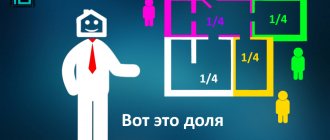Who has the right to live in a dormitory
Providing housing in dormitories is possible only for the period of study, service or employment relationship. With the termination of such relationships, graduation or dismissal from service, the contract for renting housing in the hostel is terminated. The decision according to which such residential premises are provided is made by the management:
- a unitary enterprise that manages the hostel;
- state-owned enterprise or organization under whose operational management the given object is located.
Thus, persons who move into a dormitory are required to maintain employment ties with the institution or enterprise that manages the dormitory. Categories other than those listed above cannot be accommodated in such housing. The decision is the basis for concluding a contract for renting accommodation in a hostel. A contract is signed for the period of study or the period of labor relations. It sets out the basic rights and obligations of both parties.
Rights and responsibilities of residents of dormitories
Citizens who live in a dormitory have the right to:
- use the provided housing, cultural premises and other purposes;
- demand that timely replacement of furniture and other equipment that has become unusable be carried out, and in addition to this, the elimination of shortcomings in housing and household issues.
Citizens' responsibilities include:
- use the provided living space exclusively for its intended purpose;
- adhere to internal regulations, fire safety, and comply with sanitary and hygienic standards;
- monitor the safety of the premises, treat equipment and inventory with care;
- pay for accommodation on time;
- adhere to the rules for maintaining the local area.
Principles and standards for the provision of living space in dormitories
Article 105 of the Housing Code of Russia establishes the norm for the provision of living space in dormitories. It is at least 6 m2 per person. Families may qualify for isolated housing. It is allocated based on the decision of the commandant (head) of the hostel, under whose jurisdiction this facility is located. After the appropriate decision is made, the person is issued a warrant in a certain form, which is the basis for moving into a rental living space in a hostel.
People who live in such housing cannot dispose of the occupied space at their own discretion, for example, demand to divide it, exchange it, sublet it, etc.
There are also some restrictions regarding the occupancy of rooms that are vacant in the dormitory. Persons who live in such housing cannot demand that vacated rooms be provided for their use. That is, the rules defined by Article 59 of the Housing Code of Russia do not apply to dormitories. However, they are granted additional rights that arise from the specifics of living in a hostel, for example, the provision of furniture, bedding, other household items, etc.
Their legal regime depends on the living conditions of families. Thus, in the case of using housing under the conditions that are determined for dormitories, citizens are subject to the rules and regulations that govern living in it. In the same case, if a family that lives in a separate room pays for utilities and living space on a general basis, and not in the manner prescribed for dormitories, it is subject to the rules that govern relationships in the rental of residential premises. Payment for housing and the cost of utilities cannot exceed the amount of payment for such services that are provided to tenants under social tenancy agreements.
SNiP requirements when living in a mobile trailer on shift.
Good afternoon.
The area per 1 resident (residential and auxiliary) is determined on the basis of SanPin 42-121-47.19-88 “Sanitary rules for the design, equipment and maintenance of dormitories for workers, students, students of secondary specialized educational institutions and vocational schools.” Extracts: Section 3.6. The living area in dormitories must be at least 6 m2 per person. No more than 3 people are allowed to stay in each room, and in some cases (dormitories for vocational school students, short-term accommodation of workers and employees) - no more than 4 people. The height of residential premises must be at least 2.5 m. Clause 3.8. Living rooms should have built-in wardrobes for storing home clothes, linen, and shoes. The number of compartments in the closets should be equal to the number of beds in the room. The dimensions of each compartment must be at least 0.6 x 0.6 m. If there are front ones, built-in wardrobes can be placed in them.
Table No. 7 of the Methodological Recommendations for determining the costs associated with the implementation of construction and installation work on a rotational basis provides information on the composition and area of premises in dormitories. Based on the above, in dormitories for the accommodation of workers involved in work on a rotational basis, there must be, among other things, sanitary facilities at the rate of 1 shower, 1 washbasin and 1 toilet for 4-6 people, as well as laundry facilities, drying and ironing according to the area standards for 1 person (SanPin 42-121-47.19-88).
A rotational camp is a complex of residential, cultural, community, sanitary and utility buildings intended for employees working on a rotational basis. The rotational camp is built according to standard or individual projects, including a general plan of the village with reference to the terrain, the composition of premises, electricity, water and heat supply, postal and telegraph communications, a diagram of access roads and a runway, justification for the method of personnel delivery, cost estimates for its construction and maintenance. This follows from Part 3 of Article 297 of the Labor Code of the Russian Federation, as well as paragraphs 1.2, 3.1 and 3.3 of the Basic Provisions approved by Resolution of the USSR State Committee for Labor, the Secretariat of the All-Union Central Council of Trade Unions, and the USSR Ministry of Health dated December 31, 1987 No. 794/33-82. According to Appendix No. 7 to the Methodological Recommendations for determining the costs associated with the implementation of construction and installation work on a rotational basis, adopted by the Letter of Rosstroi dated 04.04.2007 N SK-1320/02, the living space standards in the rotational camp should be determined according to the standards established by SanPiN for the hostel. However, the SanPiN, which Rosstroy refers to, is currently no longer in force, and the new SanPiN does not contain requirements for footage. Such requirements are provided for by the Housing Code of the Russian Federation. According to Part 1 of Art. 105 of the Housing Code of the Russian Federation, residential premises in dormitories are provided at the rate of at least six square meters of living space per person. Thus, in a rotational camp, one worker is required to have at least six square meters of living space.
Conditions for terminating the rental contract for residential premises in a dormitory
Art. 115 of the Russian Housing Code also determines the procedure according to which a rental agreement for residential premises in a hostel is terminated. The reasons for this are the end of the labor relationship, leaving the service, or the end of the term in an elective position. Persons who were moved into the dormitory on the basis of a fixed-term employment contract, employees who were engaged in seasonal activities, as well as students who graduated from their studies must vacate the occupied housing.
If they refuse to be evicted in the prescribed manner of their own free will, they will be evicted through the courts.
This category of persons is evicted from the hostel without the provision of other housing in connection with the end of work or study, since they no longer belong to the subjects of the right to use residential premises in the hostel. The only exceptions are persons who are listed in Article 103, Part 2 of the Housing Code. What could be the grounds for ending the employment relationship in such a case? Dismissal can occur at the request of the employee, that is, the process occurs according to his personal will, or the initiator of the process can be the employer.
Thus, we can conclude that such a contract is concluded exclusively for the duration of the employment relationship, study or service. Termination of such relations is the reason that leads to the termination of the document. Citizens are evicted from dormitories in the same way as from official housing.
Author of the article
Chapter 1
Chapter 2
Chapter 3
Chapter 4
Chapter 5
Article 1. Subject of regulation of this Federal Law
Article 2. Basic concepts used in this Federal Law
Article 3. Basic principles of state policy and legal regulation of relations in the field of education
Article 4. Legal regulation of relations in the field of education
Article 5. Right to education. State guarantees of the realization of the right to education in the Russian Federation
Article 6. Powers of federal government bodies in the field of education
Article 7. The powers of the Russian Federation in the field of education, transferred for implementation to state authorities of the constituent entities of the Russian Federation
Article 8. Powers of state authorities of the constituent entities of the Russian Federation in the field of education
Article 9. Powers of local government bodies of municipal districts and city districts in the field of education
Article 10. Structure of the education system
Article 1. Subject of regulation of this Federal Law
Article 2. Basic concepts used in this Federal Law
Article 3. Basic principles of state policy and legal regulation of relations in the field of education
Article 4. Legal regulation of relations in the field of education
Article 5. Right to education. State guarantees of the realization of the right to education in the Russian Federation
Article 6. Powers of federal government bodies in the field of education
Article 7. The powers of the Russian Federation in the field of education, transferred for implementation to state authorities of the constituent entities of the Russian Federation
Article 8. Powers of state authorities of the constituent entities of the Russian Federation in the field of education
Article 9. Powers of local government bodies of municipal districts and city districts in the field of education
Article 10. Structure of the education system
Article 1. Subject of regulation of this Federal Law
Article 2. Basic concepts used in this Federal Law
Article 3. Basic principles of state policy and legal regulation of relations in the field of education
Article 4. Legal regulation of relations in the field of education
Article 5. Right to education. State guarantees of the realization of the right to education in the Russian Federation
Article 6. Powers of federal government bodies in the field of education
Article 7. The powers of the Russian Federation in the field of education, transferred for implementation to state authorities of the constituent entities of the Russian Federation
Article 8. Powers of state authorities of the constituent entities of the Russian Federation in the field of education
Article 9. Powers of local government bodies of municipal districts and city districts in the field of education
Article 10. Structure of the education system
Article 1. Subject of regulation of this Federal Law
Article 2. Basic concepts used in this Federal Law
Article 3. Basic principles of state policy and legal regulation of relations in the field of education
Article 4. Legal regulation of relations in the field of education
Article 5. Right to education. State guarantees of the realization of the right to education in the Russian Federation
Article 6. Powers of federal government bodies in the field of education
Article 7. The powers of the Russian Federation in the field of education, transferred for implementation to state authorities of the constituent entities of the Russian Federation
Article 8. Powers of state authorities of the constituent entities of the Russian Federation in the field of education
Article 9. Powers of local government bodies of municipal districts and city districts in the field of education
Article 10. Structure of the education system
Article 11. Federal state educational standards and federal state requirements. Educational standards
Article 12. Educational programs
Article 13. General requirements for the implementation of educational programs
Article 14. Language of education
Article 15. Network form of implementation of educational programs
Article 16. Implementation of educational programs using e-learning and distance learning technologies
Article 17. Forms of education and forms of training
Article 18. Printed and electronic educational and information resources
Article 19. Scientific, methodological and resource support for the education system
Article 20. Experimental and innovative activities in the field of education
Article 21. Educational activities
Article 22. Creation, reorganization, liquidation of educational organizations
Article 23. Types of educational organizations
Article 24. Moscow State University named after M.V. Lomonosov, St. Petersburg State University. Categories of educational organizations of higher education
Article 25. Charter of an educational organization
Article 26. Management of an educational organization
Article 27. Structure of an educational organization
Article 28. Competence, rights, duties and responsibilities of an educational organization
Article 29. Information openness of an educational organization
Article 30. Local regulations containing norms regulating educational relations
Article 31. Organizations providing training
Article 32. Individual entrepreneurs carrying out educational activities
Article 33. Students
Article 34. Basic rights of students and measures of their social support and incentives
Article 35. Use of textbooks, teaching aids, teaching and educational means
Article 36. Scholarships and other monetary payments
Article 37. Catering for students
Article 38. Students’ clothing. Uniforms and other clothing (uniforms) of students
Article 39. Provision of residential premises in dormitories
Article 40. Transport support
Article 41. Health protection of students
Article 42. Psychological, pedagogical, medical and social assistance to students experiencing difficulties in mastering basic general education programs, development and social adaptation
Article 43. Duties and responsibilities of students
Article 44. Rights, duties and responsibilities in the field of education of parents (legal representatives) of minor students
Article 45. Protection of the rights of students, parents (legal representatives) of minor students
Article 46. The right to engage in teaching activities
Article 47. Legal status of teaching staff. Rights and freedoms of teaching staff, guarantees of their implementation
Article 48. Duties and responsibilities of teaching staff
Article 49. Certification of teaching staff
Article 50. Scientific and pedagogical workers
Article 51. Legal status of the head of an educational organization. President of an educational organization of higher education
Article 52. Other employees of educational organizations
Article 11. Federal state educational standards and federal state requirements. Educational standards
Article 12. Educational programs
Article 13. General requirements for the implementation of educational programs
Article 14. Language of education
Article 15. Network form of implementation of educational programs
Article 16. Implementation of educational programs using e-learning and distance learning technologies
Article 17. Forms of education and forms of training
Article 18. Printed and electronic educational and information resources
Article 19. Scientific, methodological and resource support for the education system
Article 20. Experimental and innovative activities in the field of education
Article 21. Educational activities
Article 22. Creation, reorganization, liquidation of educational organizations
Article 23. Types of educational organizations
Article 24. Moscow State University named after M.V. Lomonosov, St. Petersburg State University. Categories of educational organizations of higher education
Article 25. Charter of an educational organization
Article 26. Management of an educational organization
Article 27. Structure of an educational organization
Article 28. Competence, rights, duties and responsibilities of an educational organization
Article 29. Information openness of an educational organization
Article 30. Local regulations containing norms regulating educational relations
Article 31. Organizations providing training
Article 32. Individual entrepreneurs carrying out educational activities
Article 33. Students
Article 34. Basic rights of students and measures of their social support and incentives
Article 35. Use of textbooks, teaching aids, teaching and educational means
Article 36. Scholarships and other monetary payments
Article 37. Catering for students
Article 38. Students’ clothing. Uniforms and other clothing (uniforms) of students
Article 39. Provision of residential premises in dormitories
Article 40. Transport support
Article 41. Health protection of students
Article 42. Psychological, pedagogical, medical and social assistance to students experiencing difficulties in mastering basic general education programs, development and social adaptation
Article 43. Duties and responsibilities of students
Article 44. Rights, duties and responsibilities in the field of education of parents (legal representatives) of minor students
Article 45. Protection of the rights of students, parents (legal representatives) of minor students
Article 46. The right to engage in teaching activities
Article 47. Legal status of teaching staff. Rights and freedoms of teaching staff, guarantees of their implementation
Article 48. Duties and responsibilities of teaching staff
Article 49. Certification of teaching staff
Article 50. Scientific and pedagogical workers
Article 51. Legal status of the head of an educational organization. President of an educational organization of higher education
Article 52. Other employees of educational organizations
Article 11. Federal state educational standards and federal state requirements. Educational standards
Article 12. Educational programs
Article 13. General requirements for the implementation of educational programs
Article 14. Language of education
Article 15. Network form of implementation of educational programs
Article 16. Implementation of educational programs using e-learning and distance learning technologies
Article 17. Forms of education and forms of training
Article 18. Printed and electronic educational and information resources
Article 19. Scientific, methodological and resource support for the education system
Article 20. Experimental and innovative activities in the field of education
Article 21. Educational activities
Article 22. Creation, reorganization, liquidation of educational organizations
Article 23. Types of educational organizations
Article 24. Moscow State University named after M.V. Lomonosov, St. Petersburg State University. Categories of educational organizations of higher education
Article 25. Charter of an educational organization
Article 26. Management of an educational organization
Article 27. Structure of an educational organization
Article 28. Competence, rights, duties and responsibilities of an educational organization
Article 29. Information openness of an educational organization
Article 30. Local regulations containing norms regulating educational relations
Article 31. Organizations providing training
Materials 1 - 150 of 475 Home |
Prev. | 1
| Track. | End | All





